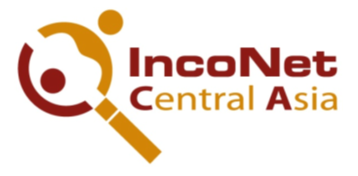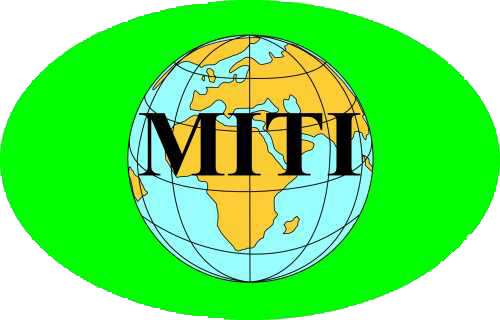
IncoNet CA Twinning Grants –
Networking among Research Institutions
Final Report
Section A. Content of Final Report
A1. General Information
- Title (note: Title should be the same as in the signed agreement): Ecosystem-based Adaption of Central Asian Rangelands and their Role to Resilience of Climate Change with specific Regard to Climate-Vegetation Trends.
- Duration of the project: 24. 09. 2015 – 24. 07. 2016
- Coordinator (including contact details): Maerkish Institute for Promotion of Technology and Innovation, Professor Dr. rer. nat. habil. Edgar O. Klose; Garzauer Chaussee 1, 15344 Strausberg, Germany. edgar.klose@miti-ev.de; +49 (0) 170 910 3936.
- Granted support (in Euro): 9.920,00
A2. Summary
The summary should include the following points (maximum of 1250 characters):
- a short description of the conducted activities: The final meeting (summit of the participa-ting institutions) took place in Bishkek, Kyrgyzstan, June 07th till June 09th where about 32 scientists from Germany (2), Uzbekistan (4) and Kyrgyzstan discussed the future projects and plans to be developed by the consortium consisting of 2 scientific institutions and 1 Nonprofit Organization from Kyrgyzstan, 4 scientific Institutions from Uzbekistan and the mentioned in the contract “IncoNet Twinning Grant 007” (Reference name) institutions from Germany. The meeting was prepared from the logistic point of view by the Director of the “Innovative Center of Phytotechnology”, the National Academy of Sciences of the Kyrgyz Republic, from the scientific point of view and conducted by the coordinator of the project. The final session was prepared by several meetings in Germany as well as in Uzbekistan.
- a short description of the achieved results: The coordinator was charged to organize a grea-ter consortium (including CAMP alatoo Bishkek, Technical University of Tashkent, Leibniz-University of Hannover and Europa-University of LaLaguna, Teneriffe, Spain) to run for several grants (Horizon 2020; World Bank, Asia Development Bank ADB etc.) to realize the scientific, technological and socio-economic goals indicated in the Bishkek summit within a time period of five years.
- a short description of and justification for any deviation that may have occurred between the expected and achieved activities and results: Because the goal of the project was enlarged from using halophytic plants to climate aspects in rangelands the Organization “CAMP alatoo”, NGO for sustainable mountain development, was invited to take part.
A3. Results and outcomes
Give a detailed description of the conducted activity and achieved results including (maximum of 3000 characters):
- A short section on the scientific objectives of the project: The main content of the project is to increase the socio-economic living conditions in remote rural areas in Central Asian rangelands under the aspect of resilience of climate change, development of alternative energy sources (mainly biogas on halophytic plants, wind, solar radiation), adapted to the given area, intelligent utilization of the generated usable energy (heat, electricity) in agriculture, gardening, animal breeding, communication, education and medical services in these areas to create sustainable jobs for increasing income by creating products for the national as well as the international market (see below). For that reason the intensive scientific cooperation between the scientific institutions in Germany, Uzbekistan, Kyrgyzstan and (in the future) Spain will generate new technologies for rural areas in close contact to SME in these countries. At the first step two reference objects – one in Uzbekistan and one in Kyrgyzstan – within five years should be erected and to set into operation.
- A detailed description of the conducted activities (type, duration, number of participants), including their results and (if possible) short- and long-term impact: The final meeting (sum-mit of the participating institutions) took place in Bishkek, Kyrgyzstan, June 07th till June 09th where about 32 scientists and officials from Germany, Uzbekistan and Kyrgystan discussed the future projects and plans of the consortium. The final session was prepared by several meetings in Germany as well as in Uzbekistan and with help of permanent electronic correspondence (see the attached report in details). The short term result is the demonstrated interest of all participating scientists and officials to stay together and to run the scientific research to reach the defined goals. The long term result will be reached after getting from all participating institutions new commitments in form of LoI to take part in the common work. The existing up to now LoI are directed to the participation in the “IncoNet CA Twinning Grant 007”. The Coordinator was charged to collect new LoI from all participating institutions, indicating the readiness to take part in future work of the consortium, too.
- Describe the potential(s) for further joint activities within the Twinning-Consortium or/and (if applicable) with other partners from the countries of CA regarding follow-up or new projects in the field of the particular societal challenge addressed with this project: There are some aspects to be mentioned: 1. This Twinning project is based on several bilateral Cooperation contracts in the national and international framework. 2. On June 30th, 2016 a Granted BMBF – project (Germany/Uzbekistan) concerning the assessment of using halophytic plants as the basis for further socio-economic development in remote rural areas was finished; this work is worth to be continued. 3. The coordinator (MITI) is very well acquainted with and linked to the development of alternative energy sources und their utilisation in Central Asia (Tashkent, Uzbekistan). 4. By including into this consortium the Kyrgyz institutions, the Leibniz University Hannover and the University of LaLaguna, Spain, all necessary scientific, technological, medical and socio-economic branches are represented in order to guarantee the success of the planned work.
- Describe how the sustainability of the partnership is guaranteed: There is a subjective point: The coordinator has a long term experience in coordinating scientific work between institutions of different countries meeting the rules of sustainable development. The objective point for guarantee will be the newly to be signed Letter of Intend of all participating institutions. After erecting the referent objects and setting into operation the experience and the results to be gained could be sold; this will be a great motivation for the participating SME of the different countries.
- Indicate the call within HORIZON 2020, for which a new (follow up) proposal has been prepared. In case the proposal is in the process of being prepared, provide details including the planned day for the submission of the application: Up to now there is no new proposal prepared. The reason is the following: 1. The new plans were worked out by the scientists of different institutions. In Uzbekistan and Kyrgyzstan these plans shall be confirmed by the leading institutions. 2. There are two new institutions (Hannover and LaLaguna) expected to get into this consortium to take over very important parts. It is planned to install the new consortium till the end of October 2016. Up to that time – coordinated by MITI – the best call in Horizon 2020 for 2017 – if any – will be selected to work out a suitable proposal in Horizon 2020.
- Explain the institutional benefit and achieved goals of the twinning process: 1. The Twinning process brought together different institutions from three countries (12 entities in total) who were only partly linked by contracts up to now. Even the groups of the National Technical Universities of Uzbekistan and Kyrgyzstan have had no contact up to now. From now all these institutions will be in close contact by bilateral Cooperation contracts, too. 2. The Bishkek Meeting oriented all participants to meet the rules of sustainable development (economics, ecology, social equity) in our common projects. 3. The coordinator committed all participants to meet the gender principle.
- Indicate milestones of important activities: 1. To include the universities Hannover and LaLaguna into the consortium by October 30th, 2016. 2. To take in the new Letter of Intend from all participating institutions by October 30th, 2016. 3. To realize suitable calls to prepare proposals for getting grants. 3. To prepare the first common proposal by January 30th, 2017
A4. Project management
The following information should be included (maximum of 750 characters):
- Describe how the overall coordination, monitoring and control of the project was implemented: Based on the long term cooperation experience in the field of (i) technology and innovation for rural areas and (ii) in the international framework, especially including the countries of Central Asia, the coordinator proposed a scheme of important topics to be solved in this project. This proposal was discussed and improved over the time by electronic correspondence, but by meetings in Tashkent (2) and Germany (5) as well. The coordinator of the project and the organizer of the final meeting in Bishkek were in close contact in order to prepare all prerequisites for a successful meeting in Bishkek.
- Explain how information flow and communication were enhanced within the project: The main way for permanent communication where e-mail, phone (call-by-call), Skype and Cloud-communication. Following face-to-face meetings took place (see also the attached report): Two meetings of German participants with Uzbek participants in Tashkent (11/2015 and 04/2016), one meeting of Uzbek participants with German participants in Strausberg and Hannover (02/2016), one meeting of Kyrgyz participants with German participants in Goslar (01/2016) and meetings in Berlin/Cottbus. All meetings were conducted by the coordinator.
Section B. Description of the used budget as compared to the granted budget
- Used budget is to be compared with the granted budget:
Overview (in €).
| Kind of Costs | Plan | Spent |
| 1. Travel expenses | 2.800,00 | 2.140,39 |
| 2. Daily allowance | 6.120,00 | 7.560,00 |
| 3. Technical/logist. support | 500,00 | 0,00 |
| 4. Temporary staff | 500,00 | 500,00 |
| Total | 9.920,00 | 10.200,39 |
The daily allowance was paid cash in accordance with the „Flat Rates for Daily Allowances“, here Kyrgyzstan (daily subsistence allowance 75,00 EURO, hotel allowance EURO 180,00 per night) getting a receipt. The costs for the airline tickets of the Uzbek participants were paid cash getting a receipt.
Section C. Submission to DLR
C.1 Submission documents comprise
- Final Report (content see above, section A and B; Contacts see below, section D.2)
- Final Financial Report (attached Excel file)
C.2 Contact
Dr. Kirsten Kienzler Dr. Hendrik Meurs
Tel: +49 228 3821-1458 Tel: +49 228 3821-1944
E-Mail: Kirsten.Kienzler@dlr.de E-Mail: Hendrik.Meurs@dlr.de
